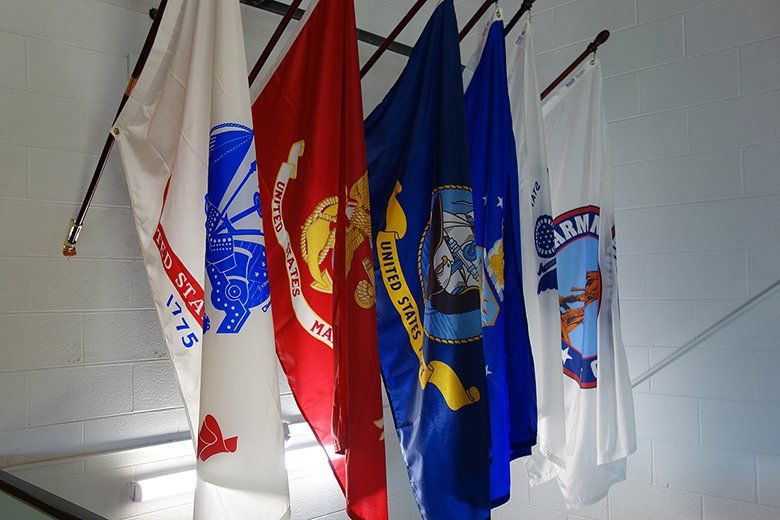VA Disability Compensation
WHAT IS VA DISABILITY BENEFIT COMPENSATION?
VA disability compensation offers a monthly tax-free payment to Veterans in recognition of effects of disabilities, diseases, or injuries incurred or aggravated while serving in the military. If you received an honorable or general discharge for your period of service, you may be eligible for VA disability benefits. If you have discharges from more than one period of service, and served honorably in one period of service, that characterization may be used to establish eligibility for VA benefits.
claims we handle
-
Post Traumatic Stress Disorder (PTSD)
Button -
Military Sexual Trauma (MST)
Button -
Traumatic Brain Injury (TBI)
Button -
Psychiatric Disability
Button -
Orthopedic Injuries
Button -
Agent Orange Exposure
Button -
Hearing Loss and Tinnitus
Button -
Sleep Apnea
Button -
Gulf War Veteran Presumptive Conditions
Button -
Total Disability Individual Unemployability (TDIU)
Button
APPEALS MODERNIZATION ACT
Under the Appeals Modernization Act (AMA), which became law in 2017, the VA now has three options, or “lanes” for appeal: Supplemental Claims, Higher-Level Review, and the traditional appeal to the Board of Veterans’ Appeals.
Top Questions
- What is a Supplemental Claim?
If you are dissatisfied with a VA decision, and wish to appeal with additional medical evidence or other supporting documentation, a claim under the Supplemental lane may be right for you. When applying for a Supplemental review, evidence submitted must be “new and relevant,” meaning that it must not have been previously considered. The VA is required to assist you in developing this evidence.
- What is a Higher-Level Review?
In many cases, the VA may have all of the information necessary to grant service connection, but failed to do so; a Higher-Level Review (HLR) under these circumstances may be in order. Under the HLR process, your claim is reviewed by a more senior claims adjudicator. These senior adjudicators review the evidence of record (no new evidence may be submitted), and may overturn the decision or remand it to gather more information for correction. A claimant may also request an informal conference to help identify specific issues.
- When should I apply to the Board of Veterans’ Appeals (BVA)?
Should your appeal fail through the Supplemental Claim or Higher-Level Review lane, it is frequently necessary to file an appeal to the BVA. In these appeals, a Veteran Law Judge will review your case for discrepancies through three options: (1) direct review (no new evidence, and you do not want an in person hearing), (2) evidence submission (you have new evidence, but do not want a hearing), and (3) hearing (you have new evidence and want to testify before a Veteran Law Judge). In 2015, the BVA reviewed over 52,000 appeals; of these, a little over 43,000 were granted award benefits by the Board or remanded for further review to the VA Regional Office. This staggering figure (over 80%) underlines the necessity of the appeals process.
LEGACY APPEALS PROCESS
Under the Legacy Appeals process, if you are unsatisfied with a VA decision, you can pursue a three-stage appeals process, which includes: (1) Filing a Notice of Disagreement (NOD) with your local VA and requesting a Decision Review Officer review, (2) Appealing to the Board of Veterans’ Appeals, and (3) Appealing to the U.S. Court of Appeals for Veterans Claims (also referred to as Veterans Court, USCAVC, or simply CAVC).
WHAT YOU NEED TO KNOW
- Filing a Notice of Disagreement (NOD) with your local VA and requesting a Decision Review Officer review
As part of the first stage of the appeals process, you must file Notice of Disagreement (NOD) (VA FORM 21-0958) with the VA. At this stage, it is also recommended that you request a Decision Review Officer (DRO) review of the issues disagreed with. The NOD must be filed within one year of the date you receive the decision on your case.
If you requested a local review when filing your NOD, a review of the issues you disagreed with will be conducted “de novo,” meaning the review of your claims will be done without any deference given to the previous VA decision. The Decision Review Officer conducting the new review has the authority to make a new decision on your claim, meaning you will essentially be given a “second bite at the apple.”
After your initial claim has gone through a Decision Review Officer review, the VA will send you information on your claim, which will include a Statement of the Case, evidence, and laws used to make a decision. Along with this information about your case, you will receive an appeal form (VA Form 9). If you are unsatisfied with conclusions of the Decision Review Officer review, the next step is to appeal to the Board of Veterans’ Appeals.
- Appealing to the Board of Veterans’ Appeals
In order to initiate this process, you must complete the VA Form 9. Importantly, there are deadlines for filing these forms. The Board of Veterans’ Appeals reviews the decisions made by the local VA office. When requesting a review, you can articulate whether you would like a hearing to take place.
A hearing is an informal hearing conducted by the decision review officer in charge of deciding your claim. There are three possible hearing formats (e.g., a hearing in Washington D.C., a video conference, or a hearing at your local VA office). At the hearing, you have the opportunity to advocate for yourself. Deciding whether or not to request a hearing may vary depending on your case. Our attorneys can help you determine whether a hearing should be requested, which format would serve you best, and can also ensure you are prepared for the hearing. Having an attorney represent you at this hearing is beneficial to ensuring you are guided through the process efficiently and effectively.
The BVA will not make a decision immediately on your case. Rather, the board member will review the information you presented and a transcript of the hearing before deciding to allow your claim, deny your claim, or send the case back to the local office in order to get more details.
- Appealing to the U.S. Court of Appeals for Veterans Claims (CAVC)
The U.S. Court of Appeals for Veterans Claims is a Federal Court. This is generally the last step in the VA appeal process. Claims at this level typically involve complicated rules and procedural details and can take an extended period of time. As such, it is best to have an attorney represent you at this stage.
"I worked as a student-attorney at the RMVAP for my entire third year at DU law school and I am incredibly grateful for the experiences with the attorneys in the office. The RMVAP is an office like no other, with the core values of honesty, kindness, diligence, and investment in improving the lives of veterans in need. Veterans seeking assistance with issues ranging from discharge upgrades to estate planning can sleep soundly at night knowing that the RMVAP attorneys are doing everything in their power to reach their goals."
Grace Imhoff, '23
“As a veteran myself, ensuring that servicemembers receive the care and compensation they deserve is particularly important to me. No veteran should be subject to “gatekeeping” for the benefits they have earned. Working for the RMVAP allows me to use my legal skills to support this deserving community, and fight for those who need it most.”
Brad Cummings
Executive Director
Want more information?
All Rights Reserved | Fix8













